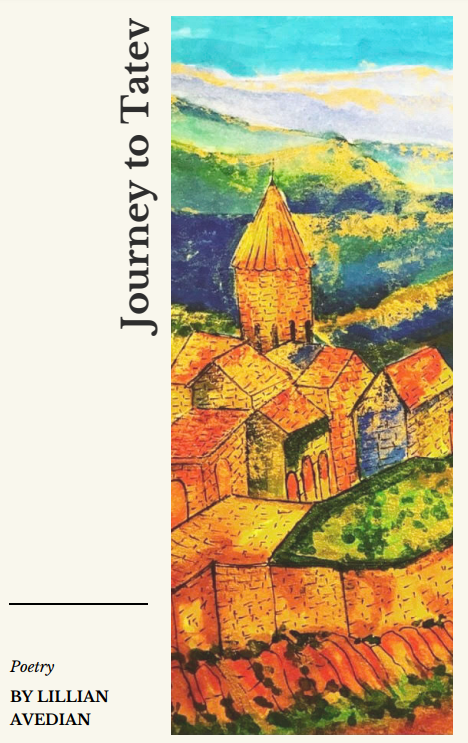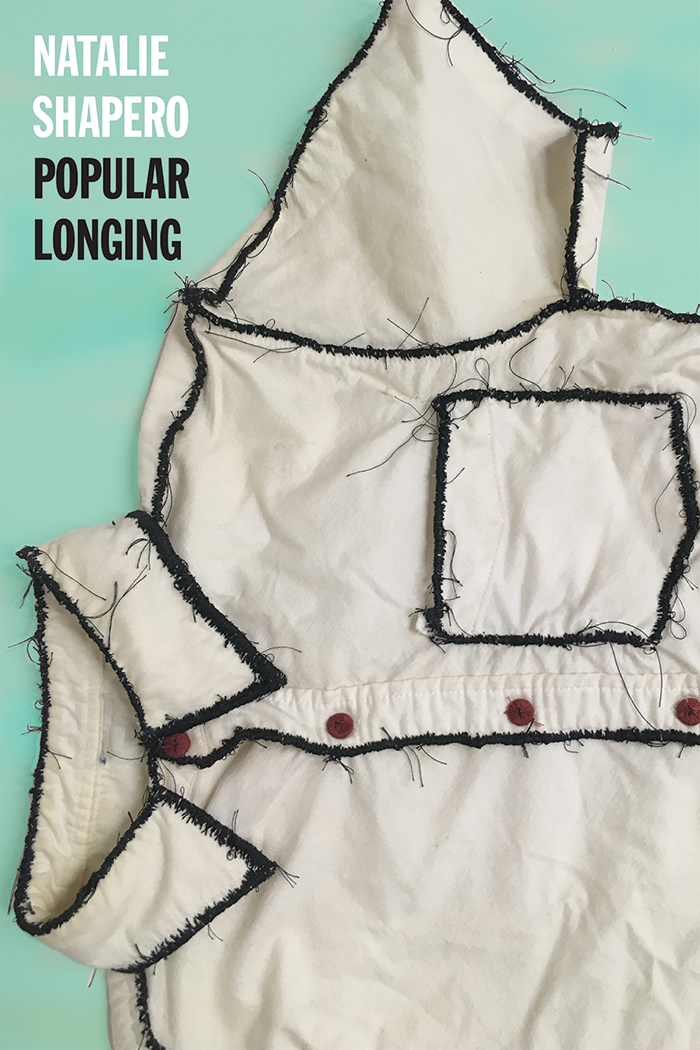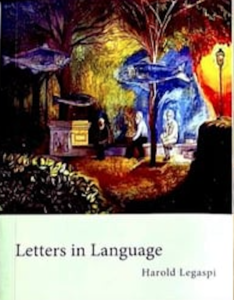 Journey to Tatev is a love poem to the self and to the other, written along the trajectory of a single journey. These airy, deeply rhythmic poems encompass the multi-lingual voice of a migrant, coming-of-age, coming out, coming to terms with the past and future simultaneously. Words and notes dance across the page, engaging all of the senses in this vibrant and deeply moving collection.
Journey to Tatev is a love poem to the self and to the other, written along the trajectory of a single journey. These airy, deeply rhythmic poems encompass the multi-lingual voice of a migrant, coming-of-age, coming out, coming to terms with the past and future simultaneously. Words and notes dance across the page, engaging all of the senses in this vibrant and deeply moving collection.
Category: Book Reviews
Book Reviews
A review of Chronicity by Michael J Leach
 Leach manages the visual in particularly powerful ways in Chronicity. The concrete poems in the collection take on many forms, weaving and working through, around, between and besides their subject matter, playing with font, space, shape, and design to stretch out time, slow the reader, twist back on themselves, emphasise and create sound paths in the ear.
Leach manages the visual in particularly powerful ways in Chronicity. The concrete poems in the collection take on many forms, weaving and working through, around, between and besides their subject matter, playing with font, space, shape, and design to stretch out time, slow the reader, twist back on themselves, emphasise and create sound paths in the ear.
A review of Popular Longing by Natalie Shapero
 At the center of the collection is the breathtaking tour de force entitled “Don’t Spend It All in One Place,” a series of fourteen fourteen-line poems (though not exactly “sonnets” in a metrical sense), whose themes of violence and art and time, coming “unstuck” in time, make one think of Billy Pilgrim, Kurt Vonnegut’s anti-hero in Slaughterhouse Five. There’s a similar dark humor at work in Shapero’s poems.
At the center of the collection is the breathtaking tour de force entitled “Don’t Spend It All in One Place,” a series of fourteen fourteen-line poems (though not exactly “sonnets” in a metrical sense), whose themes of violence and art and time, coming “unstuck” in time, make one think of Billy Pilgrim, Kurt Vonnegut’s anti-hero in Slaughterhouse Five. There’s a similar dark humor at work in Shapero’s poems.
A review of Fireworks by Oliver Smuhar
 The book is beautifully presented, with hand drawn illustrations, photographs, quotations, and facts about the different animals in the book and the events that inspired them, particularly the 2019/20 Australian bushfires, which were particularly devastating in Smuhar’s Blue Mountains hometown and which had some an intense impact on Australian flora and fauna (for example, some 60,000 koalas were negatively impacted by the fires). Smuhar’s goal with this book is not only to raise funds, but to entertain and educate.
The book is beautifully presented, with hand drawn illustrations, photographs, quotations, and facts about the different animals in the book and the events that inspired them, particularly the 2019/20 Australian bushfires, which were particularly devastating in Smuhar’s Blue Mountains hometown and which had some an intense impact on Australian flora and fauna (for example, some 60,000 koalas were negatively impacted by the fires). Smuhar’s goal with this book is not only to raise funds, but to entertain and educate.
A review of Closer to Fine by Jodi S. Rosenfeld
 Dr. Rosenfeld’s novel is informative and interesting on the subjects of Judaism, Psychology, and same sex relationships. I was charmed by Rachel’s envisioning of God as a woman angel whose patchwork wings are made up of one’s glimpses of the divine. Another excellent idea is presented in the novel – that after a break-up, a woman should buy herself a ring to symbolize her commitment to herself as her own best friend.
Dr. Rosenfeld’s novel is informative and interesting on the subjects of Judaism, Psychology, and same sex relationships. I was charmed by Rachel’s envisioning of God as a woman angel whose patchwork wings are made up of one’s glimpses of the divine. Another excellent idea is presented in the novel – that after a break-up, a woman should buy herself a ring to symbolize her commitment to herself as her own best friend.
A review of The Truth about Our American Births by Judith Skillman
 Skillman employs many references to transportation – trains, mostly, but other kinds too. In the introductory poem we get our first train reference, when the grandmother is counting beats for her own personal waltz: “Always the counting beneath the whistles of trains/ running westward from the town of no money.” (from My Grandmother’s Waltz, p. 18). The train here is ghost-like. It brings a nagging fear of having to escape poverty.
Skillman employs many references to transportation – trains, mostly, but other kinds too. In the introductory poem we get our first train reference, when the grandmother is counting beats for her own personal waltz: “Always the counting beneath the whistles of trains/ running westward from the town of no money.” (from My Grandmother’s Waltz, p. 18). The train here is ghost-like. It brings a nagging fear of having to escape poverty.
A review of One Hundred Letters Home by Adam Aitken
 Between the images, the recollections, the references, the correspondences and the longing, a new kind of story emerges – one that allows the the gaps in the narrative to remain unknown. Aitken doesn’t find the “key to a past the will grant…a thousand and one narratives” (“Stolen Valour”). Instead he finds questions that become Koans, a pathway to a greater truth.
Between the images, the recollections, the references, the correspondences and the longing, a new kind of story emerges – one that allows the the gaps in the narrative to remain unknown. Aitken doesn’t find the “key to a past the will grant…a thousand and one narratives” (“Stolen Valour”). Instead he finds questions that become Koans, a pathway to a greater truth.
A review of Woman Drinking Absinthe by Katherine E. Young
 Throughout the collection, Young depicts the demimonde of women in the midst of affairs of the heart, neither fish nor fowl, but mostly foul; at least, fraught with emotional turmoil. This is captured so succinctly in “Postcards from the Floating World,” a series of four haiku that all begin similarly: “I cry out. His words”; “I cry out. His eyes”; “I cry out. His lips”; “I cry out. His hands / claw fierce, wild, deeper than pain / cradling my face.” The balance between pleasure and pain is a constant seesaw.
Throughout the collection, Young depicts the demimonde of women in the midst of affairs of the heart, neither fish nor fowl, but mostly foul; at least, fraught with emotional turmoil. This is captured so succinctly in “Postcards from the Floating World,” a series of four haiku that all begin similarly: “I cry out. His words”; “I cry out. His eyes”; “I cry out. His lips”; “I cry out. His hands / claw fierce, wild, deeper than pain / cradling my face.” The balance between pleasure and pain is a constant seesaw.
A review of Letters in Language by Harold Legaspi
 Letters in Language is a powerful collection: vibrant, sexy, sad, and very smart. The poems are dense, but also full of play, open space for reader interpretation, and steeped in cultural and literary references. As with all memoir, it is the exploration of a life, but is also an exploration of poetry, the way in which language itself creates reality and history, and very nature of the literary form.
Letters in Language is a powerful collection: vibrant, sexy, sad, and very smart. The poems are dense, but also full of play, open space for reader interpretation, and steeped in cultural and literary references. As with all memoir, it is the exploration of a life, but is also an exploration of poetry, the way in which language itself creates reality and history, and very nature of the literary form.
A review of The Eggplant Curse and the Warp Zone by Shawn Rubenfeld
 Despite being a novel that deals with serious issues plaguing American society, it gives the impression that one is reading a lighter text because the author uses humor so well. That’s partly because the humor embedded within the title The Eggplant Curse and the Warp Zone anchors the text. The characters the narrator seems to make fun of are never turned into buffoons, dehumanized but respected for their humanity. This allows the reader to have unwavering empathy with the central character.
Despite being a novel that deals with serious issues plaguing American society, it gives the impression that one is reading a lighter text because the author uses humor so well. That’s partly because the humor embedded within the title The Eggplant Curse and the Warp Zone anchors the text. The characters the narrator seems to make fun of are never turned into buffoons, dehumanized but respected for their humanity. This allows the reader to have unwavering empathy with the central character.